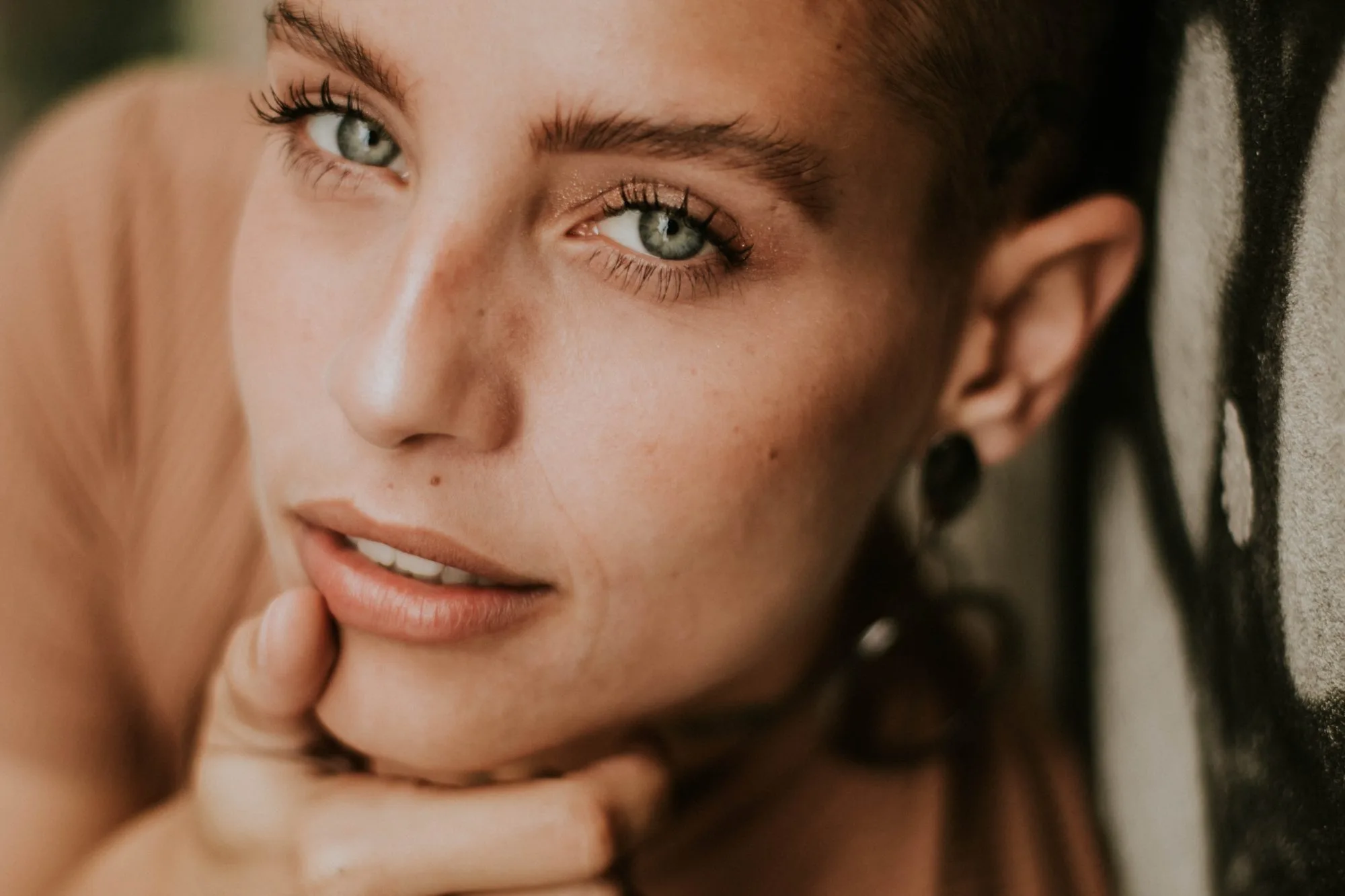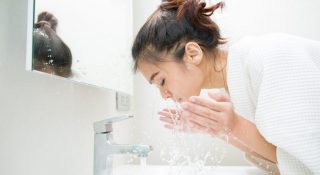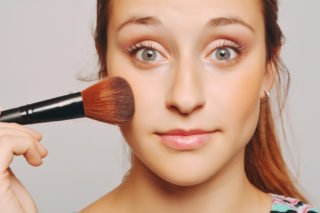The trend to more simpler skin care may well stand the test of time. Self-care and sustainability are taking priority in a world all shaken up!
Taking a look at the skincare trends
One immediately notices a shift towards a gentle approach and sustainability. But it goes further than that. Amid the COVID-19 pandemic, for many people, skincare has become an important element of self-care. Shereene Idriss, M.D., New York dermatologist, also believes that the pandemic has given us extra time to really pay attention to our skin. No longer seen as a schlep, it represents a special time in one’s day. This is when you can realign, be mindful and do something good for your body.
The rise of simpler skincare
Early 2020 also saw a boom in the sale of skincare products when restrictions made it difficult to keep up regular visits to the dermatologist. Further, at-home beauty tools like facial steamers got a rise in popularity. While research from Spate indicates that other beauty trends included purple haircare products to preserve colour, serums and blue light-blocking products.
These are the biggest moves that we’ve been seeing this year and how you can use them to enhance your own skincare routine.
1. Skinimalism is all about stripping back to what’s important
It’s time to give dated, overcrowded routines with a multitude of products the boot. Skinimalism embraces a simpler, more sustainable approach and gives your skin a chance to breathe. It also looks to fewer products that can multi-task and are more effective overall.
Bonus: skinimalism is better for the environment!
What does this look like in practice?
Quality rather than quantity. Speak to your dermatologist about what your skin really needs, and opt for effective formulas that will deliver results. Rather than buying two different moisturisers for morning and night, choose one well-made formula with the right ingredients.
2. Refillable products and packaging make your skincare routine more eco-friendly

Photo by Akil Mazumder from Pexels
2021 has seen more and more brands embracing the move to become more ‘climate-positive’. This is true for more than just skincare, of course. Nowadays, your hair care, cosmetics, and personal care all provide additional options to refill products rather than toss the packaging. Furthermore, companies are taking responsibility by looking at the nature of:
- production methods
- harvesting techniques
- ingredients sourcing and
- energy usage
As a result, there is an overall reduction in wasteful or unethical practices.
What does this look like in practice?
You can do your bit for the planet by supporting brands that are working to be more environmentally friendly. Do your part to recycle your bottles wherever possible. Shop with brands that are cruelty-free and against animal testing. Do your research to find beauty brands that are playing their part. The more consumers demand transparency from companies, the more they will be forced to relook the way they function.
3. The focus is on barrier repair
Barrier repair is here to save your skin’s day and fortify the skin barrier. Social media is obsessed with the concept, with nearly 130 000 mentions of #skinbarrier on Instagram and over 44 million views of the hashtag on TikTok.
In the pursuit of smooth, clear skin and skincare trends like ‘glass skin’, we saw an increase in the usage of resurfacing products, micro-needling, exfoliating acids and at-home peels. Unfortunately, these can potentially be very stripping. For more sensitive skin, it can cause redness, irritation, breakouts and dehydration.
Furthermore, our skin barrier is being compromised by daily facial coverings and masks during the pandemic. Maskne and irritation is the result.
According to Victoria Evans, Education Manager at Dermalogica, when your skin barrier is intact, you can enjoy healthy, functioning skin. This kind of skin is hydrated, looks healthy and is able to keep out environmental pollutants and microbes. She elaborates, “whereas a compromised skin barrier leads to moisture loss, pH change, imbalance of the microbiome and invasion of irritants.”
What does this look like in practice?
In order to repair your barrier, it’s important to reassess your skincare routine. If you’ve been using a lot of resurfacing products and your skin is looking irritated, try giving your skin a break and focus on calming products instead.
The right ingredients are a big part of the process. Ceramides are good fatty acids that make up your skin. Glycerin is a humectant, which helps to retain moisture. Hyaluronic acid also helps to increase the moisture in the skin. Niacinamide helps to prevent signs of ageing and can help to counter the side effects of retinol. Squalane and Centella Asiatica are known for their calming properties. First and foremost, however, is the right sunscreen. Click on this link to find out how to choose sun protection for your skin.
4. Blue light protection

Photo by Brandy Kennedy on Unsplash
More time working from home equals more time in front of your laptop screen. This, in turn, equals more exposure to blue light. Which has negative consequences for both your skin and your eyes. “The crisis has given people more time to reflect and become aware of just how much time they’re spending in front of their screens,” said One Ocean Beauty’s founder and CEO, Marcella Cacci.
Even if we’re careful about how much time we spend in the sun, we need to be aware of the fact that blue light (a.k.a HEV light) penetrates deeper than UV rays. This is why more and more skincare companies are reworking their formulas to include protection against blue light.
What does this look like in practice?
Speaking to Byrdie, board-certified dermatologist Ainah Tan, MD, FAAD, says that she specifically recommends sunscreen with iron oxide. Because this type of sunscreen does protect against visible light. “Besides, the use of products with antioxidants and vitamin C help minimize damage from blue light as well as possibly repair skin.”
Other ways to help protect your skin (and eyes) include:
- taking regular breaks from your electronic devices
- reapplying your sunscreen regularly
- investing in blue light screen filters for your devices
- enabling the night mode option on your devices to reduce blue light emissions
5. Skincare + makeup hybrids 
This is possibly one of the side trends to flow from skinimalism, and it’s definitely a step in the right direction for your skin. Who doesn’t want their makeup to be good for their skin? And if you are going to choose to put something on your skin all day, it really should have benefits other than covering imperfections. Plus, it saves time, and it’s better value for your money.
What does this look like in practice?
Basically, your makeup now works double-duty. Enter serum-foundations, highlighters that contain skin-friendly ingredients, tinted lip balms that provide moisture as well as colour, CC creams that soothe and calm irritation, and face mists that hydrate and soften the skin as well as setting makeup.
If you want to get in on this trend, click on this link to find out how to optimise your skincare so you can use less makeup.
References:
Andrews, A. 2021. Vogue. 32 Best New Sustainable Beauty Products Have Circularity In Mind. https://www.vogue.com/article/best-new-sustainable-beauty-products
Vogue. The beauty trends customers are buying during Covid-19. https://www.voguebusiness.com/beauty/the-beauty-trends-customers-are-buying-during-covid-19
Coates, H. 2021. Vogue. Skinimalism: The Stripped-Back Beauty Trend Lazy Girls Will Love. https://www.vogue.co.uk/beauty/article/skinimalism-beauty-trend







![women [longevity live]](https://longevitylive.com/wp-content/uploads/2020/01/photo-of-women-walking-down-the-street-1116984-100x100.jpg)









